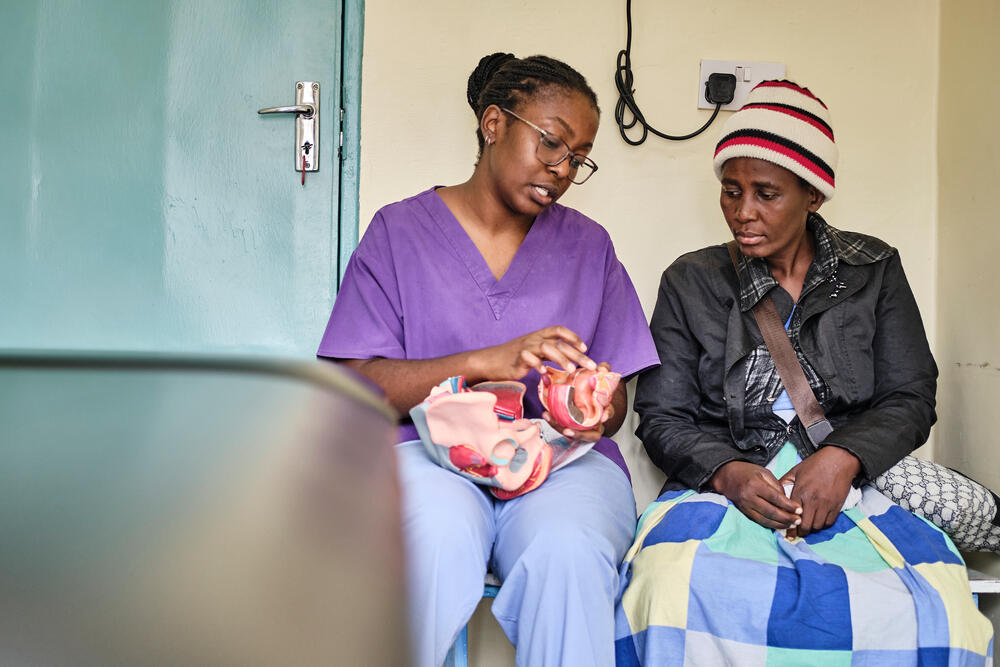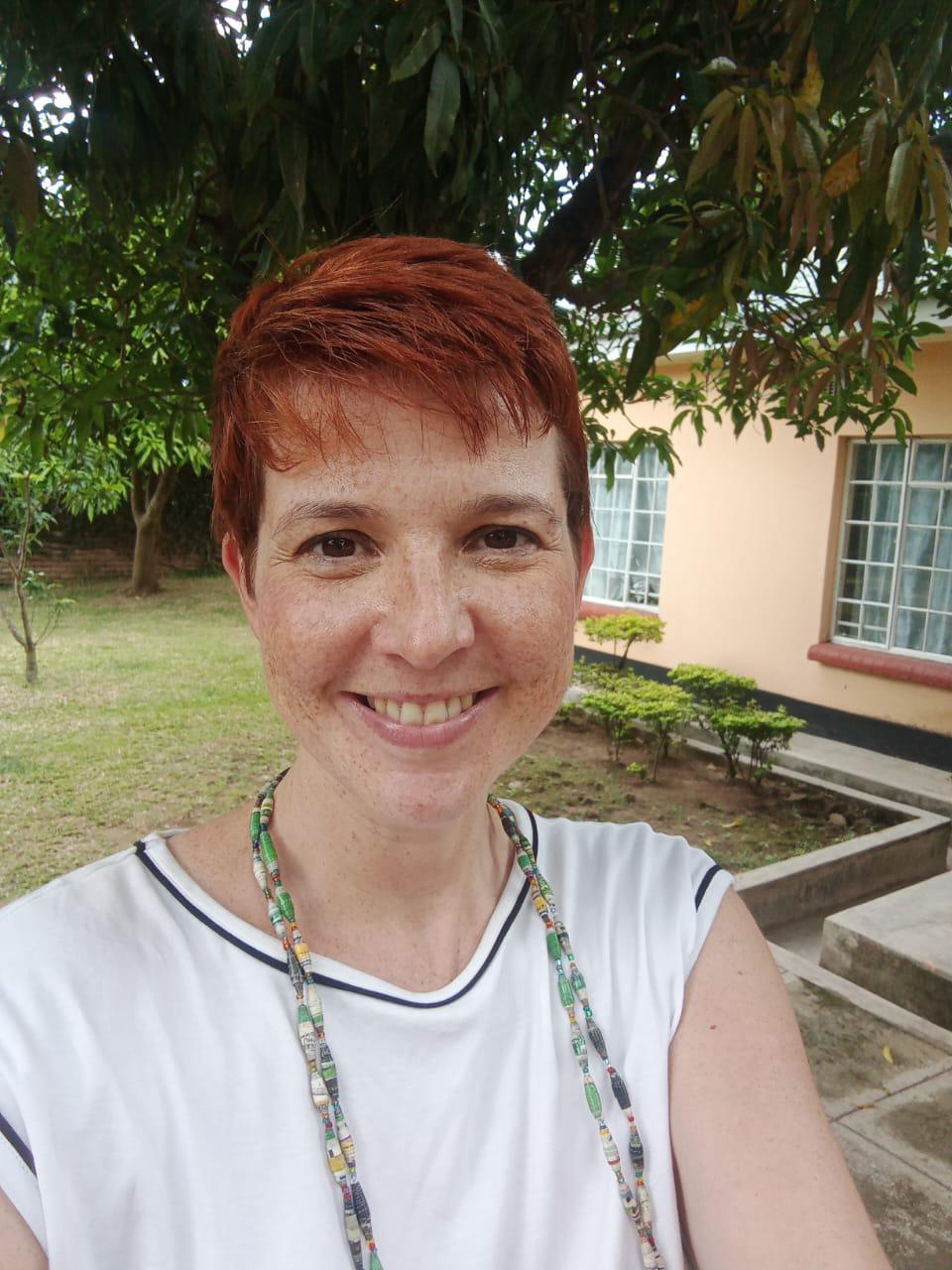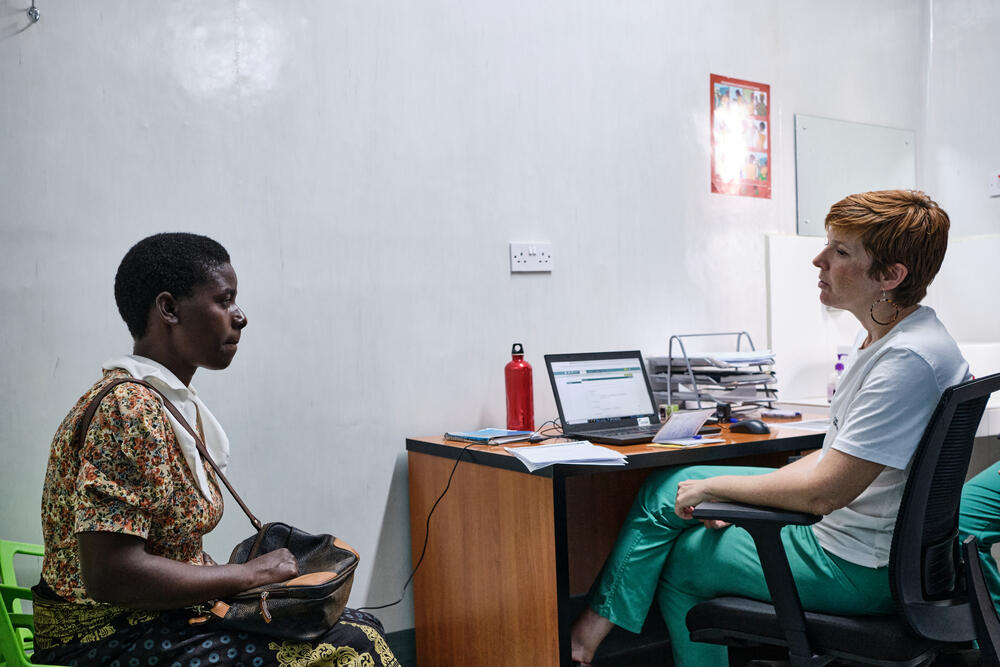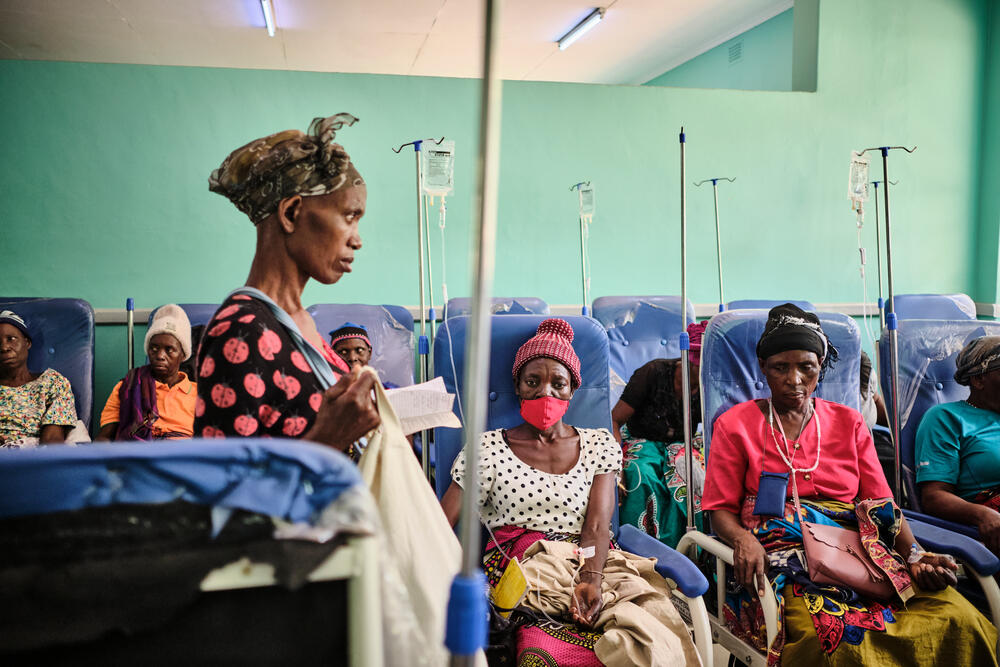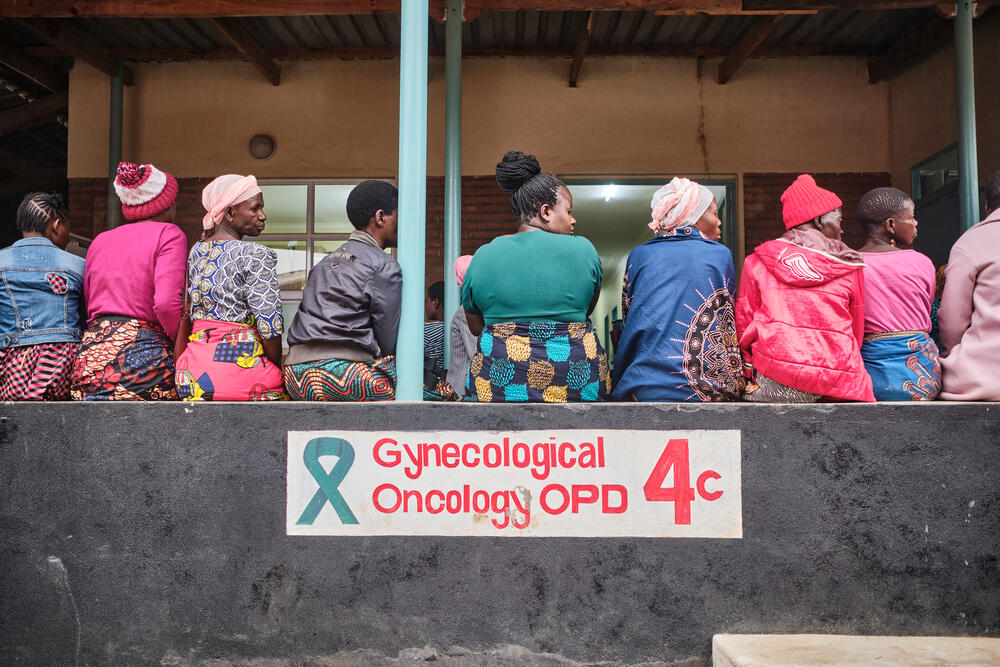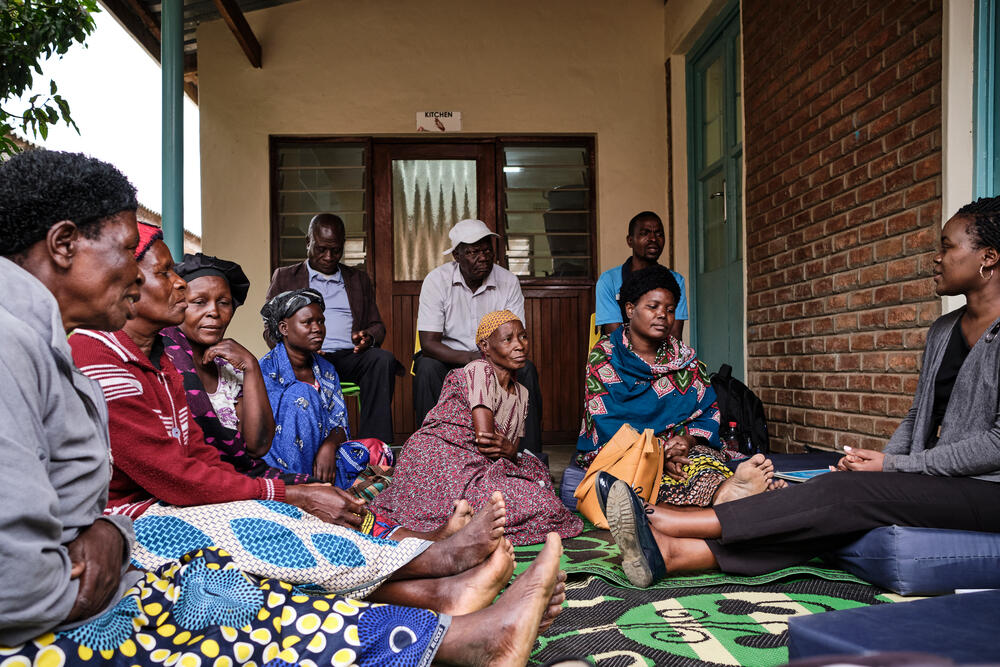Making cervical cancer more survivable in Malawi
In Malawi, the mortality rate for cervical cancer is one of the highest in the world. Dr Ute Schilling explains the reasons behind the crisis and how Médecins Sans Frontières / Doctors Without Borders (MSF) is responding.
"Have you been vaccinated against the human papillomavirus (HPV)? Do you go for regular cancer screenings? Most women in my home country, Germany, will answer yes to these questions.
The great thing is that if you or your relatives are diagnosed with cervical cancer in Germany, your chances of recovery and survival are good: of the 4,400 people diagnosed with this type of cancer here every year, 90 percent are still alive after five years.
The situation is very different in Malawi, however, where I spent nine months on assignment as a cancer specialist. Here, too, more than 4,000 people are diagnosed with cervical cancer every year, but almost 3,000 people die from it every year.
This means that Malawi has the second highest mortality rate for cervical cancer after Eswatini.
As a gynaecologist specialising in oncology, I have mainly treated patients with other types of gynaecological cancer over the past five years, as cervical cancer is rather rare in Germany and is usually detected at a very early stage.
The daily work in Malawi was a great mental challenge due to this difference.
Cervical cancer while pregnant
I was particularly touched by the story of one patient, Zola*, who came to us 17 weeks pregnant with cervical cancer. Not an easy situation, because we couldn’t operate without terminating the pregnancy.
Zola decided to continue the pregnancy and undergo chemotherapy, despite possible side effects for the child. Without any therapy, the carcinoma (a type of cancer that starts in skin cells or the tissue lining organs) would have continued to grow during the pregnancy and would have worsened her prognosis.
She received chemotherapy every three weeks until shortly before the due date and her baby was delivered by planned caesarean section. During the same operation, her uterus, its suspensory structures, fallopian tubes and pelvic lymph nodes were completely removed.
Although this is the standard procedure for cervical carcinoma, it is a very extensive operation with many potential risks and requires a high level of technical expertise.
My two Malawian colleagues perform this operation up to eight times a week in the project, which is an enormous workload.

Help us prepare for the next emergency
I was very pleased that everything went according to plan: fortunately, Zola did not go into premature labour so that the operation could be carried out. After two days on the neonatal ward, the baby was able to return to its mother.
It was wonderful that Zola was not only able to go home cured, but also with a healthy child.
"Time and again, I had to give very young women, some of them single mothers, very poor diagnoses and prognoses"
Sixty percent incurable
MSF has treated more than 4,750 patients with cervical cancer in Blantyre since the project opened its doors in 2018. Most of our patients came to my consultation at a very advanced stage. I mainly treated women who came for an examination because of suspected cervical cancer or, in rare cases, vulvar or ovarian cancer. We took samples and used ultrasound to determine the stage of the tumour.
We then found out whether the cancer was still operable, whether the patients needed chemotherapy or whether a cure was no longer possible. In 60 percent of the patients we examined, unfortunately only palliative treatment was the only option as no cure was possible - that was extremely depressing.
Enjoying my work - despite all the difficulties
Time and again, I had to give very young women, some of them single mothers, very poor diagnoses and prognoses. That wasn't always easy to bear. I therefore tried to maintain a certain distance, which was helped by the fact that I always worked in a team and usually had a Malawian nurse at my side to translate. This meant that I was able to start individualised therapy from a medical perspective without being completely overwhelmed by the difficult outcomes.
Despite all the challenges, I really enjoyed working in a very close-knit team. The mutual support during the weekly conference, where we discussed patients' treatment plans, and conversations with colleagues from the palliative and psychosocial teams made a big difference.
The problem lies in the system
The reasons for the dramatic situation in Malawi are complex. The country in southeast Africa is considered poor: according to the World Bank, more than 70 percent of the population live below the poverty line.
Accordingly, the healthcare system is inadequate and has enormous gaps in provision. All of this has serious consequences: on a normal day, I see around 15 patients - of which a good 12 have carcinoma.
The reasons cervical cancer rates are so high in Malawi are because of the following factors:
- Poor vaccination rate
- Hardly any screening
- Hardly any early symptoms: the early stages of cervical cancer do not usually cause any symptoms such as pain. A lack of education and also shame in relation to sexual health mean that many patients only come to us very late
- Insufficient treatment options: until the beginning of this year, it was not possible to offer radiochemotherapy (a combination of radiotherapy and chemotherapy for inoperable findings) in Malawi
- HIV is a huge risk factor: people living with HIV are six times more likely to develop cervical cancer due to their compromised immune system and Malawi has one of the highest HIV rates in the world
Good palliative care and treatment options
Depending on age and stage, the treatment options were considered after examination and diagnosis. For the older patients aged between 65 and 80, the main focus was on good palliative care. We tried to minimise their pain during their remaining time.
It was different with the younger patients: I was always very relieved when a patient came to us at a stage that was still operable. If the operation could then be performed successfully and the pathology results confirmed our previous assessment, no follow-up treatment was necessary. The patient was discharged with a good prognosis.
I will always remember the gratitude of the patients, even if a cure was no longer possible."
*names have been changed
MSF in Malawi
Malawi is a landlocked country in southeast Africa. Mortality rates for cervical cancer there are among the highest in the world. Our teams work alongside the Malawian health authorities to provide a comprehensive cervical cancer programme, including access to prevention, screening, diagnosis and treatment.
MSF first worked in the country in 1992, and over the years much of our focus has been on improving care for people living with HIV. Today, we continue this work, with a focus on specific groups such as children and sex workers.
